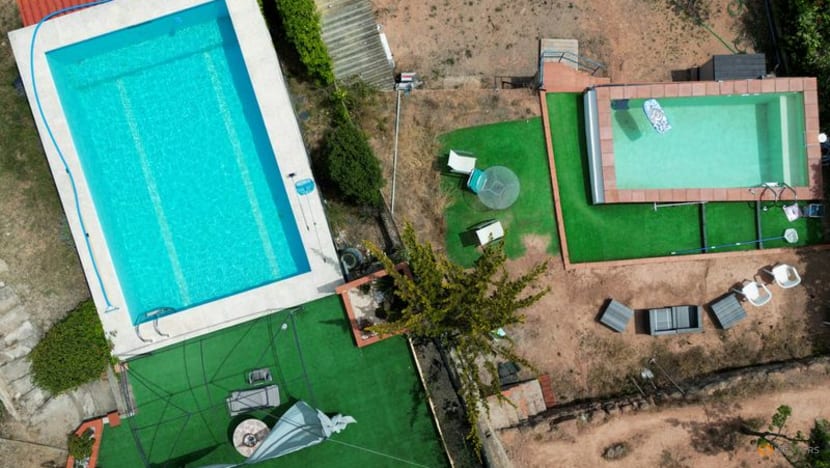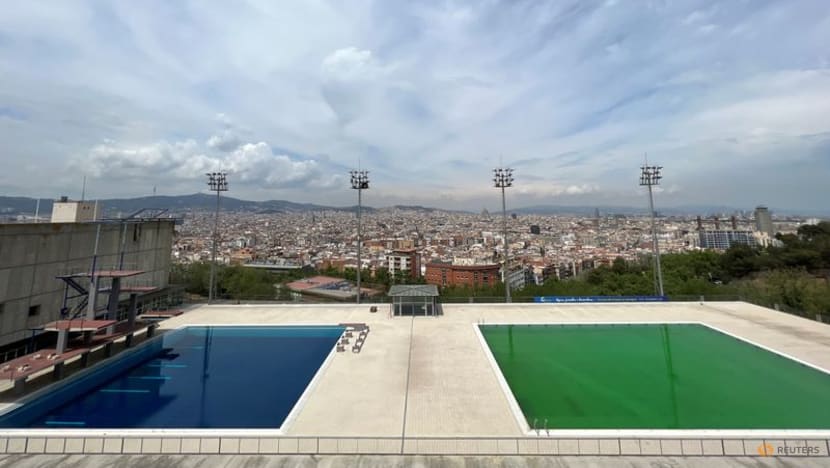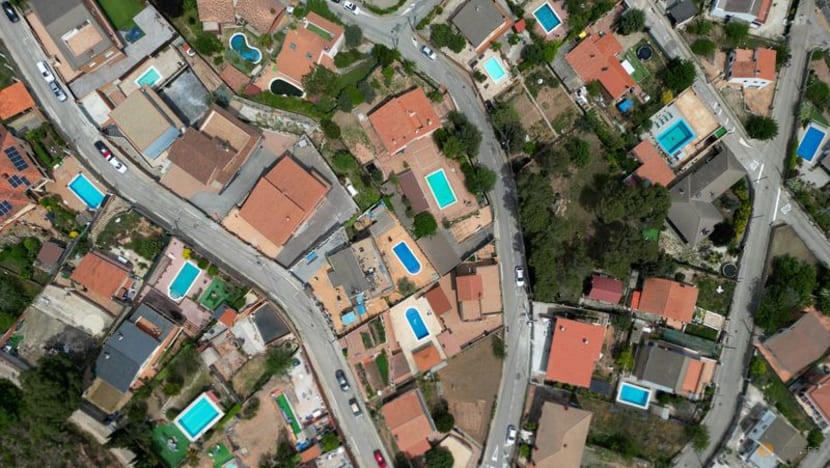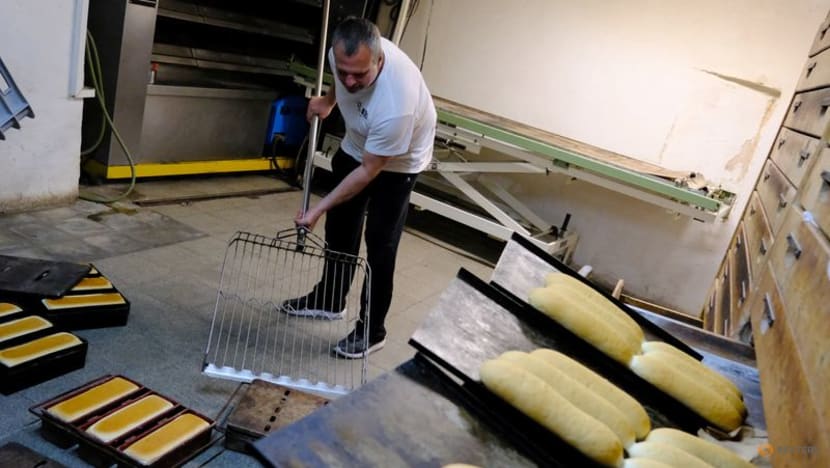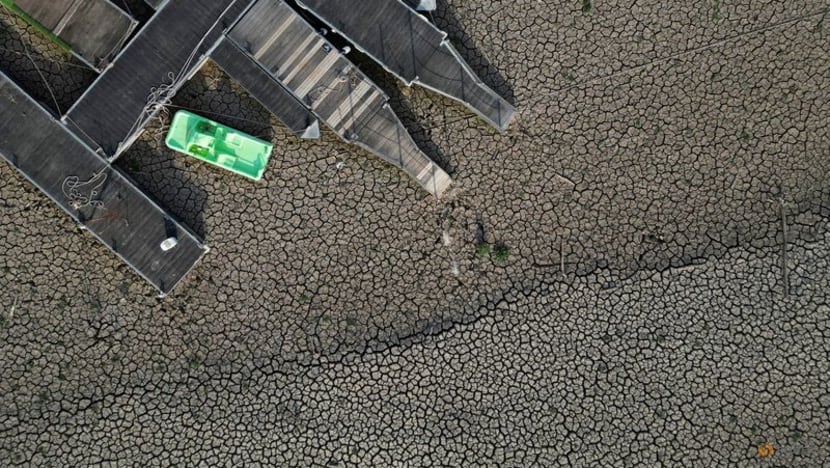In Vacarisses, a scattered town of more than a dozen subdivisions with views of the Montserrat mountain range, residents are bracing for another difficult summer after enduring 16-hour water cuts last year when aquifers ran dry. Mayor Antoni Masana called the pool restrictions a "necessary measure" and stressed that the town had worked to drill new wells.
"Due to climate change, we are seeing less and less rain and water. What we have to do is to rethink, to adapt our model to a (new) reality," Masana said.
Catalonia is one of the most parched regions in Spain, with some reservoirs at just 7 per cent of their capacity. This April was the warmest and driest in Spain since records began in 1961, according to the meteorological agency AEMET.
UNFAIR STIGMATISATION
Vacarisses has gained regional notoriety for its quantity of pools. With a population of 7,000 and more than 1,500 registered pools, there is one for every five residents, although in urban legend that amount has multiplied.
"If you go anywhere, people ask you where you are from and when you say Vacarisses, they say: 'Oh, the town with 30,000 pools," said Antonia Leon Garcia, a local resident. "It starts getting annoying."
While her swimming pool has been empty for five years since her children grew up, Garcia, 61, said the town has been stigmatised unfairly for its pools.
Most pools in the town are rarely refilled and, if they are, it is normally with water trucked in from out of town, she said.
Pools are being used as a scapegoat for a lack of coherent water policy in Spain, she said. Authorities should invest in more desalination and purification plants to supplement aquifers and reservoirs, she said.
It is a sentiment shared by Gonzalo Delacamara, director of the IE Centre for Water & Climate Adaptation in Madrid.
While the use of water to fill swimming pools during a drought is irresponsible, the bulk of Spain's water resources are taken by the agriculture sector, accounting for 70 per cent of water usage, he said.
According to Delacamara, Spain lacks centralised policies on water management that could provide incentives for farmers to use more expensive desalinated water for irrigation, with decisions on water rates falling on local town councils.
It is a system "that's susceptible to obscene modifications during pre-election periods in which all the mayors promise cheaper water in a context of climate change and drought," he adds.
